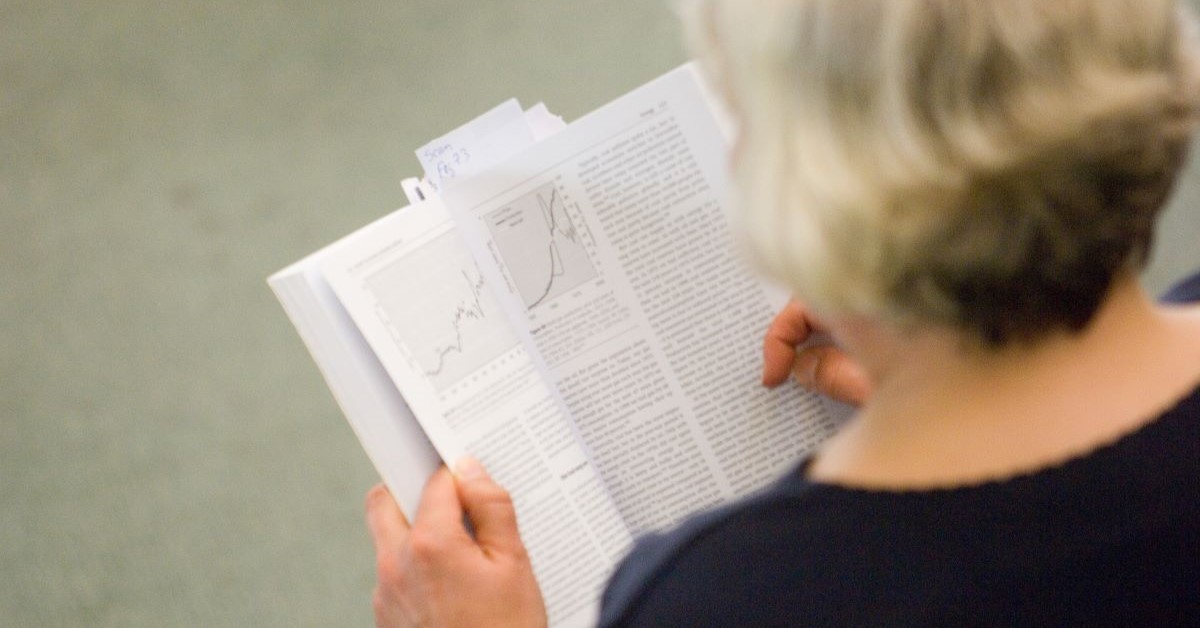Want to improve your reading skills?
01/12/2025

Are you starting to read through the mountains of journals, books or articles for your project or on your course reading list?
Let’s start with a few myths about the reading process:
- You need to read everything on your course reading list
- You need to read the complete article/book/journal from start to finish
- Reading quickly is the best strategy
- You don’t need to make notes
- You can’t criticise academic text as you are not the expert
These are all wrong – let’s see what the best advice is about reading methods and making effective notes.
Do you have to read everything? No – apart from a key or ‘expected’ texts, you need to decide what you need to read. However, you might have to take a look at the introduction to each one to check whether it is important for your study and worth reading in more depth.
We have provided some effective reading techniques in our Study Skills Hub which are far more effective than just trying to read quickly. These include skimming the abstract summary and conclusion to get an overview, or scan reading to find something specific. You can then make up your own mind about whether, why or how the ideas presented in literature are important in relation to your study or research. Be active and take responsibility for your own learning.
Whichever method you choose, while you are reading, it essential that you take notes so that you can return to the sources if you need to use them later in your writing. Have a look at the various note-taking methods to find the one that works for you.
Being ‘critical’ does not mean finding faults or being negative about other author’s work. It means thoughtfully analysing what is being said and drawing your own conclusions or ideas. It is essential to develop a critical mindset when reading academic texts. Consider your own starting position/thoughts on the issue presented as this will help you analyse and compare what is being said in the text. Remember, applying critical thinking techniques while you are reading is an important precursor to writing critically.
You can learn more about examples of the critical questions you should be asking in the Study Skills Hub.
Further information
If you’d like to explore further, look out for our in-person and online workshops on various topics. And if you struggle with the mechanics of reading, you can find disability and learning support on MyCranfield, provided by the Student Wellbeing and Disability Support team.
Extracts from Reading and Making Notes by Jeanne Godfrey and Getting Critical by Kate Williams (Pocket Study Skills)
Categories & Tags:
Leave a comment on this post:
You might also like…
Company codes – CUSIP, SEDOL, ISIN…. What do they mean and how can you use them in our Library resources?
As you use our many finance resources, you will probably notice unique company identifiers which may be codes or symbols. It is worth spending some time getting to know what these are and which resources ...
Supporting careers in defence through specialist education
As a materials engineer by background, I have always been drawn to fields where technical expertise directly shapes real‑world outcomes. Few sectors exemplify this better than defence. Engineering careers in defence sit at the ...
What being a woman in STEM means to me
STEM is both a way of thinking and a practical toolkit. It sharpens reasoning and equips us to turn ideas into solutions with measurable impact. For me, STEM has never been only about acquiring ...
A woman’s experience in environmental science within defence
When I stepped into the gates of the Defence Academy it was the 30th September 2019. I did not know at the time that this would be the beginning of a long journey as ...
Working on your group project? We can help!
When undertaking a group project, typically you'll need to investigate a topic, decide on a methodology for your investigation, gather and collate information and data, share your findings with each other, and then formally report ...
From passion to purpose: My journey at the Pinnacle of Aviation
By: Sultana Yassin Abdi MSc Air Transport Management, Current Student Born and raised in the vibrant landscape of the UAE, with roots stretching back to Somalia, my life has always been ...






